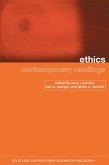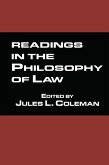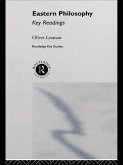The overriding rationale behind this book is the desire to enrich the lives of college students by introducing them to philosophical thinking in an accessible and engaging manner. The classic selections were chosen to provide personal moments of reflection as students embark upon a journey into philosophy.
The opening section, "The Role of Philosophy," provides a general introduction to philosophy. It uses real-life examples to illustrate how philosophical thinking touches all aspects of our lives, and how it is connected to other academic disciplines. Thereafter, each philosophical area, such as the nature of reality, knowledge, God, free will, and morality, has its own introduction offering further framework and context. These features allow students to connect with the content in an intuitive, natural manner. The surrounding narrative is designed to be conversational and comprehensible. The intent is to furnish a clear path through the material that enables readers to get started in understanding each philosopher's ideas and arguments. The table of contents presents each instructor with the opportunity to choose a set of readings that matches the individual needs of each class.
The goal of any introduction to philosophy anthology should be a selection of readings that stimulate us. Since there are thousands of possible readings that one can choose from, every anthology must make choices. The editing process for this anthology was driven by the need to include material that is challenging, yet accessible. The emphasis on classical readings reveals the rich and varied history of philosophy, and it provides a foundation for understanding modern philosophers' ideas and writings. The readings are long enough to develop important philosophical issues, yet short enough to concentrate on a few topics. The readings are meant to stimulate immediate reflection and offer a platform for discussion.
The opening section, "The Role of Philosophy," provides a general introduction to philosophy. It uses real-life examples to illustrate how philosophical thinking touches all aspects of our lives, and how it is connected to other academic disciplines. Thereafter, each philosophical area, such as the nature of reality, knowledge, God, free will, and morality, has its own introduction offering further framework and context. These features allow students to connect with the content in an intuitive, natural manner. The surrounding narrative is designed to be conversational and comprehensible. The intent is to furnish a clear path through the material that enables readers to get started in understanding each philosopher's ideas and arguments. The table of contents presents each instructor with the opportunity to choose a set of readings that matches the individual needs of each class.
The goal of any introduction to philosophy anthology should be a selection of readings that stimulate us. Since there are thousands of possible readings that one can choose from, every anthology must make choices. The editing process for this anthology was driven by the need to include material that is challenging, yet accessible. The emphasis on classical readings reveals the rich and varied history of philosophy, and it provides a foundation for understanding modern philosophers' ideas and writings. The readings are long enough to develop important philosophical issues, yet short enough to concentrate on a few topics. The readings are meant to stimulate immediate reflection and offer a platform for discussion.
Dieser Download kann aus rechtlichen Gründen nur mit Rechnungsadresse in A, D ausgeliefert werden.









